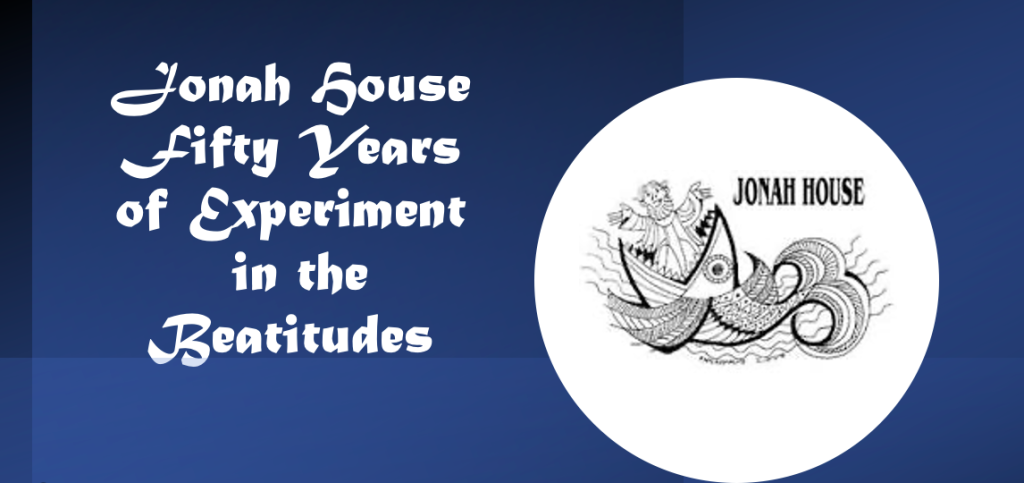By Paul Magno
I am at Jonah House in Baltimore on Holy Thursday evening, which in itself is a broken play, in terms of coronavirus vetoing the usual observances of Holy Week that I/we are accustomed to. It is our usual custom to be gathered in Washington in one of our Faith & Resistance Retreats. We’d be thirty or forty people, including some college students from the mid-west, reflecting on the classic themes of Holy Week: Holy Thursday – Jesus and his disciples observing Passover with a Seder meal, known historically to Christians as the Last Supper, and then his betrayal, passion and execution on Good Friday at the hands of church and state. We don’t leave this in the religious abstract; we consider the contemporary betrayals of Jesus and his crucifixion at the hands of the war-making empire we live under and endeavor to confront and resist. We’d typically be at the Pentagon, author of never-ending war against peoples almost too numerous to name.
In my immediate recollection, I know that we have ridiculously long military engagements against Afghanistan and Iraq, dating back at least to the early part of the century, not to mention their twentieth-century antecedents. Then Yemen and the US role in arming the Saudi kingdom with the wherewithal to inflict frightful torment, starvation and social catastrophe on that hapless country over the past five years.
If we were at the Pentagon or the White House tomorrow, we’d
speak to those instances among others liturgically as modern-day
crucifixions, some of us would risk arrest to underscoring those realities.
Instead, we are corona-housebound and I’m settling for trying to sum up Lent and Triduum and anticipate Easter, death overcome; not a small thing considering the breadth and destructiveness of the medical pandemic COVID-19, or the more pervasive and longstanding lethality of the social and political pandemic known as a contemporary empire, a demonic litany of continuous lies and empty promises ad nauseum.
I noticed, as I’ve prayed my way through Lent, how very aware Jesus is of his own danger from the collaborating forces of Roman occupation and Temple leadership. In one vignette after another, he is calibrating when to stay in hiding and when to come out of it. He turns up suddenly and draws crowds, as when he gives sight to the blind man and sends him off to testify before the scribes and Pharisees. He waits days before responding to Lazarus’ falling ill and dying via a furtive rendezvous with Martha, leading to summoning Lazarus from the dead. The powers that be, hearing of that episode, decree that Lazarus should die yet again. Jesus meanwhile lays low on the outskirts of Jerusalem, waiting for an opportune moment to manifest himself. He gives his disciples cryptic instructions about finding beasts of burden to ride into town and equally peculiar instruction later on setting up their gathering for Passover. All the same, they are infiltrated; he is betrayed, captured, tortured and marched off to death on Golgotha in a macabre spectacle of Roman humiliation and terror.
I’m mindful, (and those of us who are Christian could pay
more attention to this) of what the Passover observance commemorates. It is not
unrelated to our current corona experience. The Israelites in captivity in
Pharaoh’s Egypt follow divine instructions in the original Passover. It seems
that Egypt to that point had been successively subjected to not one, but ten
plagues, each more frightening than the one before. Moses, in Yahweh’s name,
tips them to the final one, the death of the first-born males of each
household, instructing them to slaughter a lamb and mark their homes with its
blood, to spare them from destruction, then roast the lamb and eat while dressed
for flight to the desert, as Egypt is overcome by this plague.
We have to imagine that as the first nine plagues have
proceeded, the enslaved Hebrews might have been much like we have been asked to
be, of late. Bewildered and huddling in their homes, they must be wondering
when this nakba will end.
For the beleaguered Egyptians, no relenting. Firstborn sons were slain by the angel of death, a shattering of families and of the political and social order Pharaoh’s rule relies on. All have collapsed in chaos and helplessness, much more severe than what confounds us today owing to the corona pestilence. Thus stricken, even the Sun King tells the Hebrews to get out. No telling what it will take to put Humpty Dumpty back together again. Out of such harrowing cataclysm is the nascent Israelite people thrust into freedom in the desert, ready or not. This is what Jesus and the disciples remember in the upper room before his sudden demise.
Can we imagine that come Sunday, death will be overcome and the empire itself subjected to a frightful humiliation of its own, set back on its heels by mere Galileans’ refusal to stay cowed, stay dead, stay obedient to church and state’s prescribed order. If it hadn’t happened, who would believe that it could?
God’s breath is Spirit and Life, ours maybe not so
much.
We are fearful these days
Of dying in consequence of breath.
We stagger thru a penitential season
Bewildered by the great pestilence and frightfully under its
power
Obedient to demands of social distancing and the solitude it
imposes
Scripture speaks safely from the printed page
Of Heaven’s care for us
Of blind man seeing and dead man upright,
Of putative messiah confronting, confounding world order
Animating the downtrodden, alarming our masters
What prayer is even adequate herein:
God is happy to hear from monks and Muslims
no less than five times daily, regardless of virus
And happy to answer, we presume.
Her breath shall renew the face of the earth
Threaten the mighty with resurrection, insurrection
Thee and we shall breathe together,
Kindle a fire of divine love on earth as it is in heaven,
torching greed and violence, a conspiracy of peace and life.





